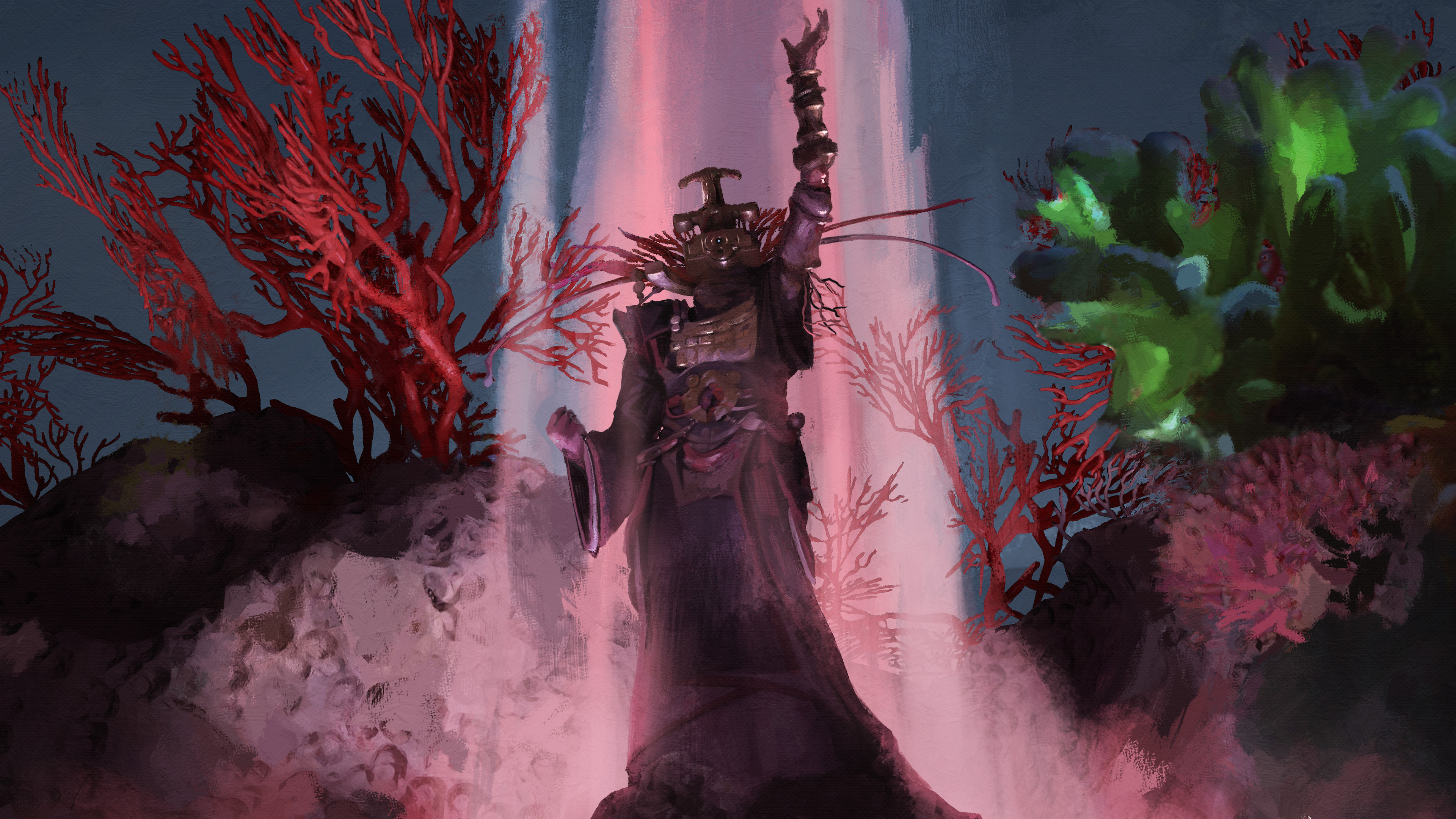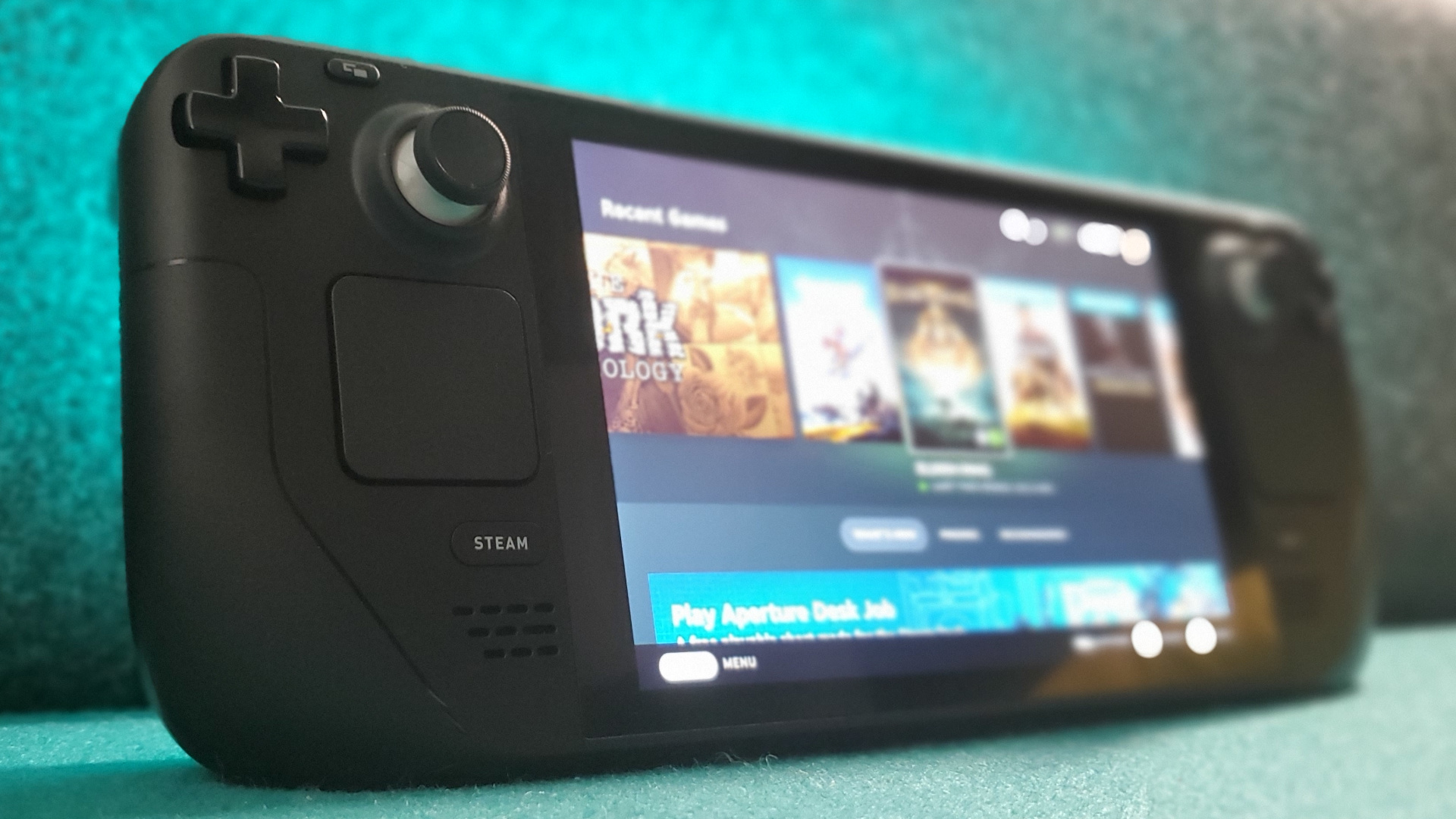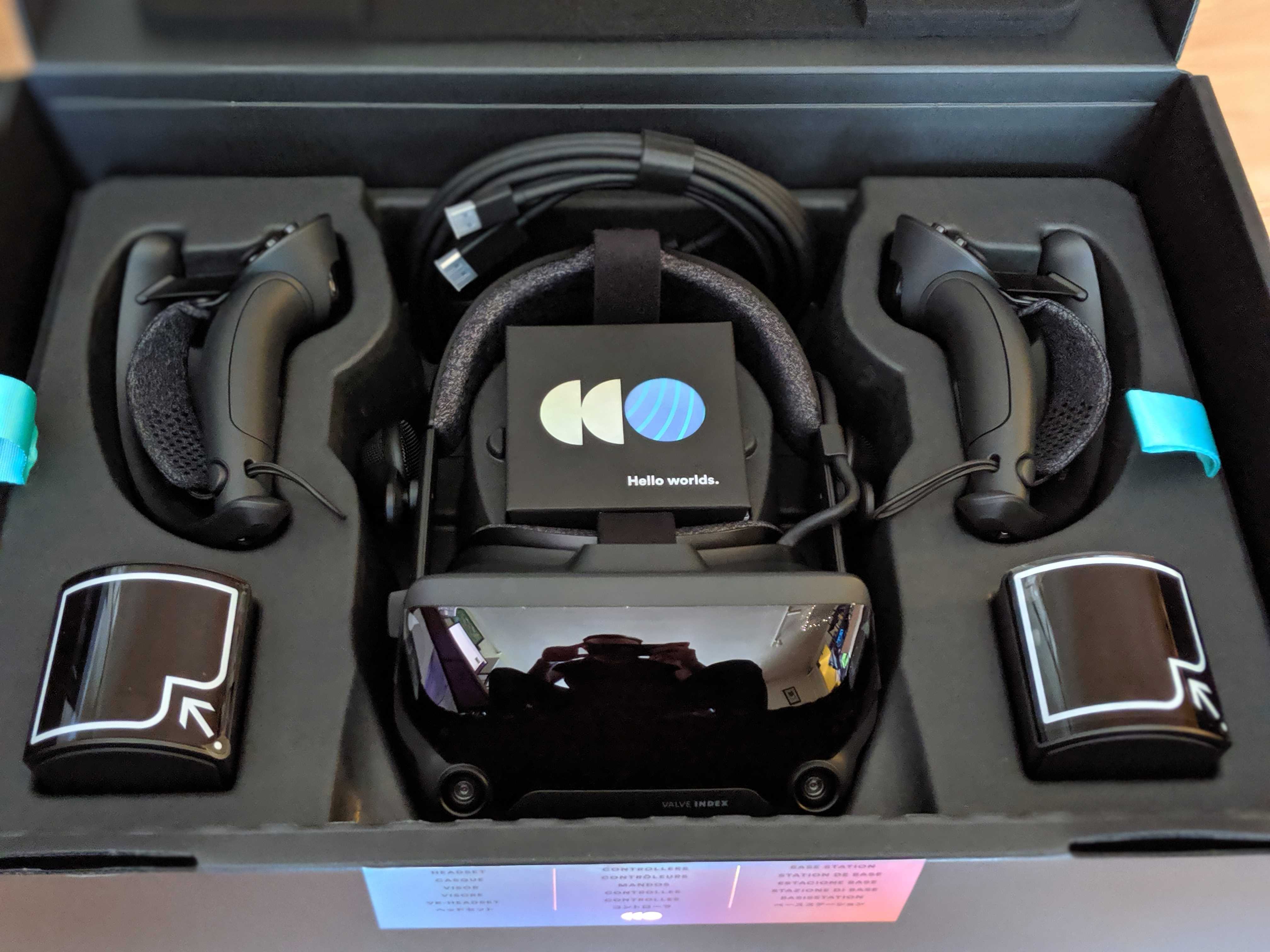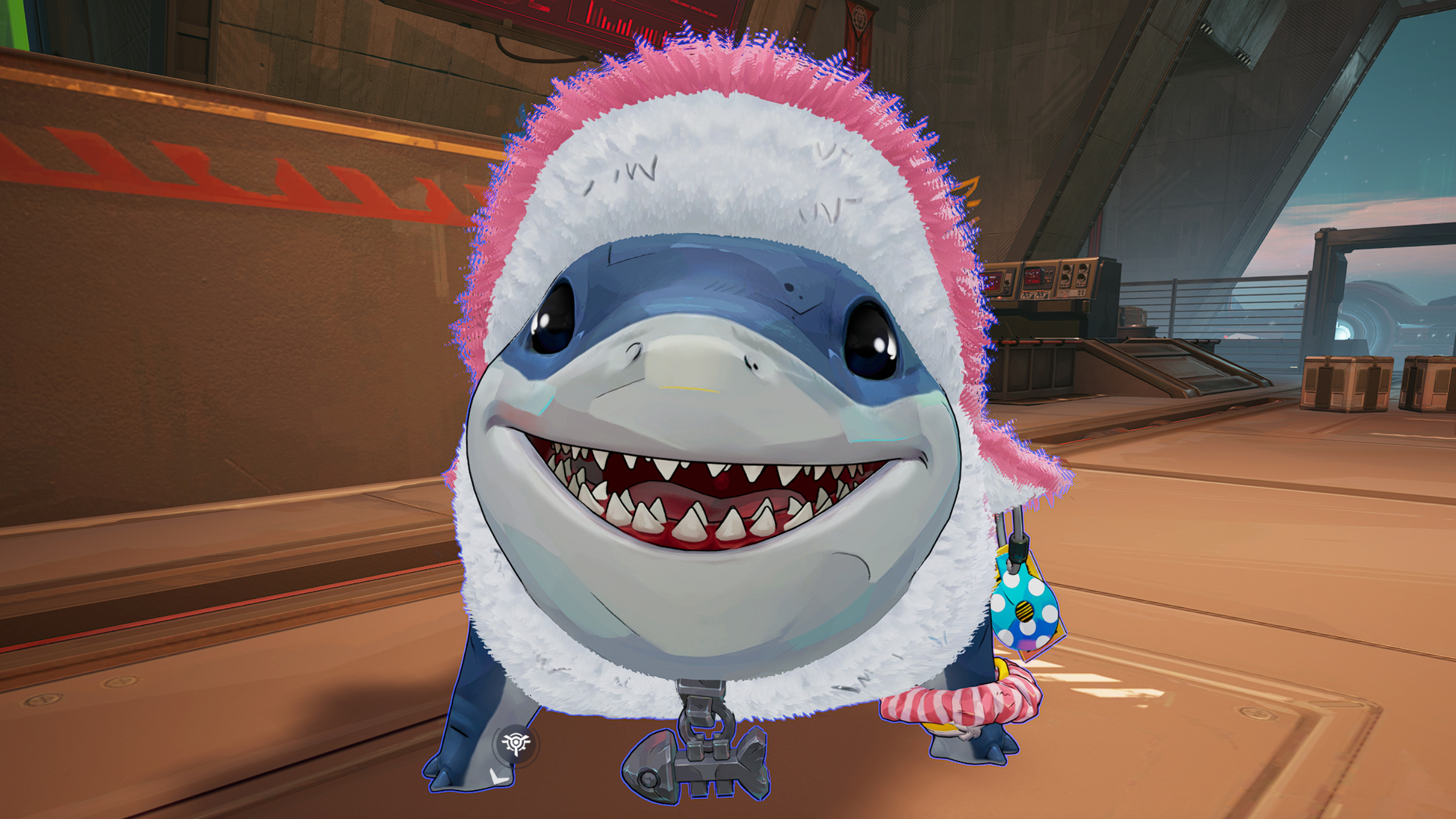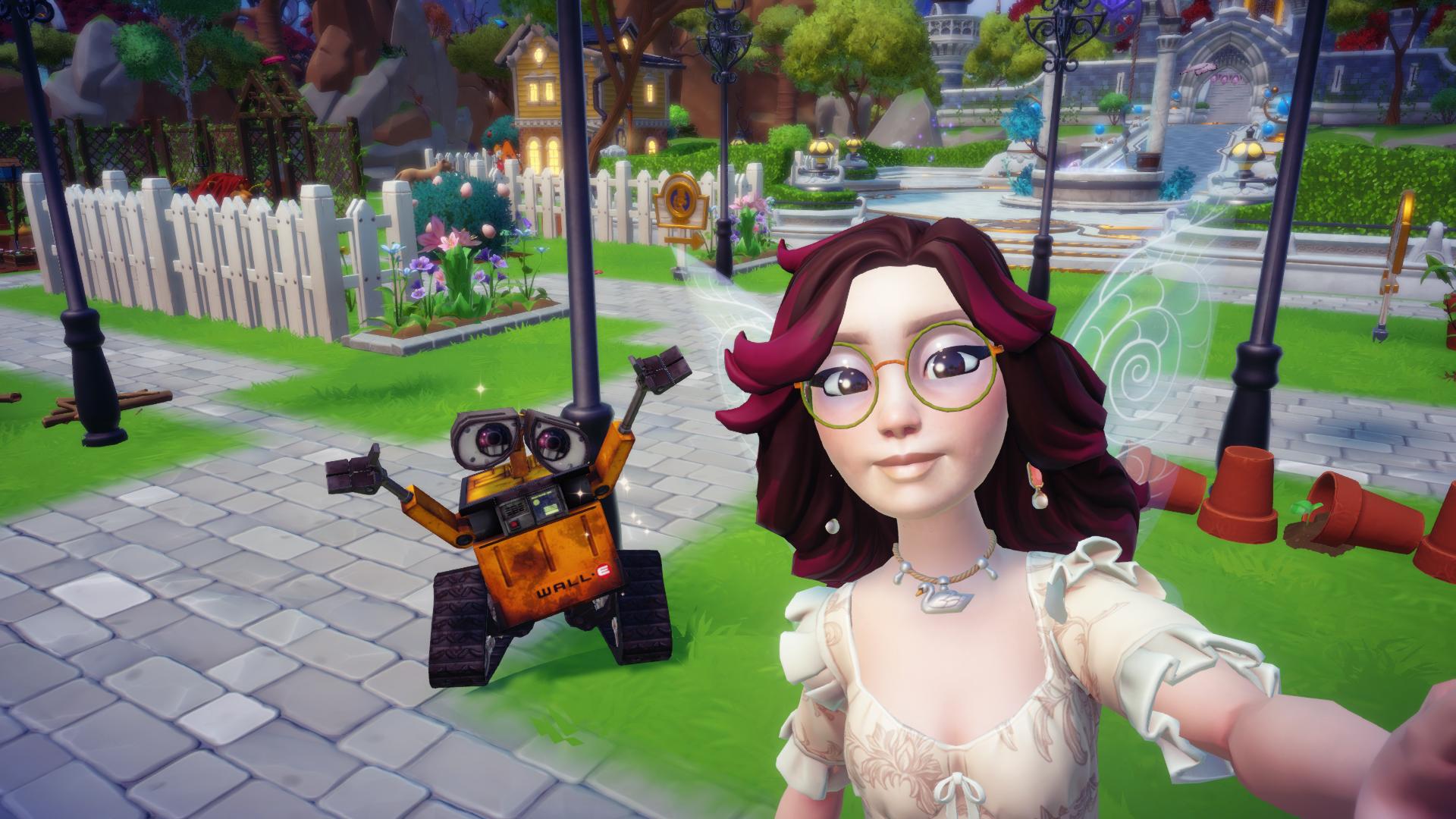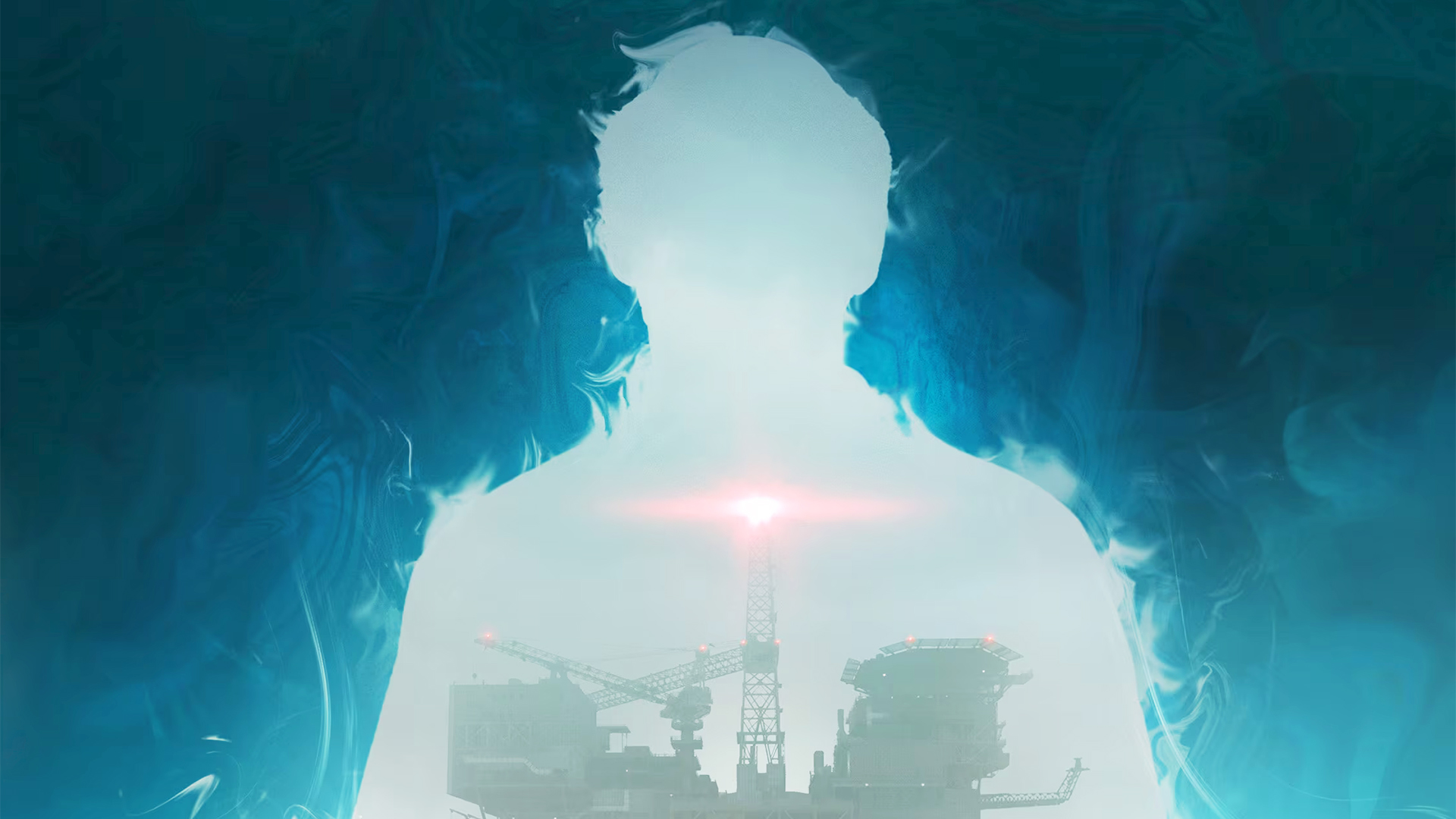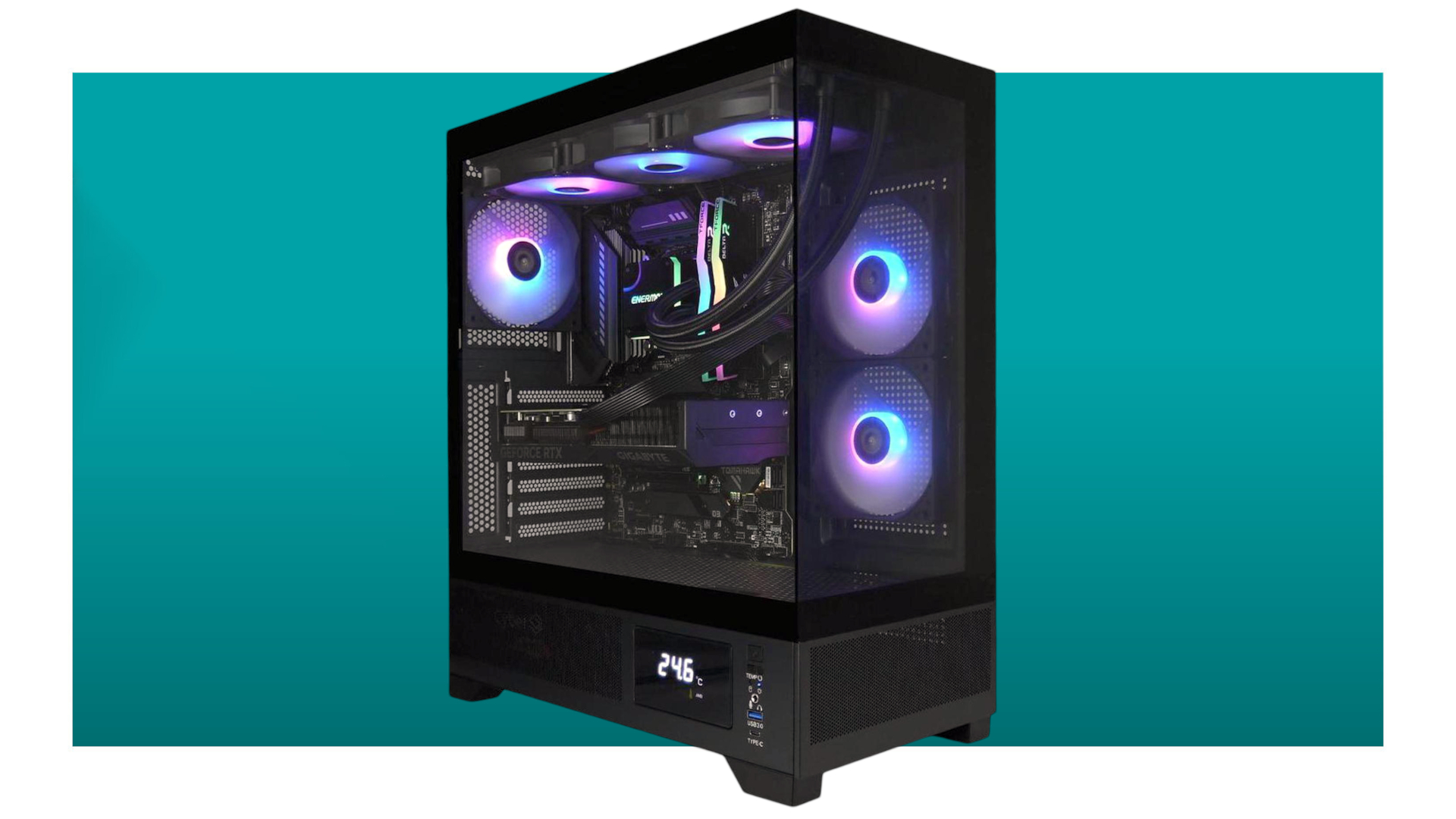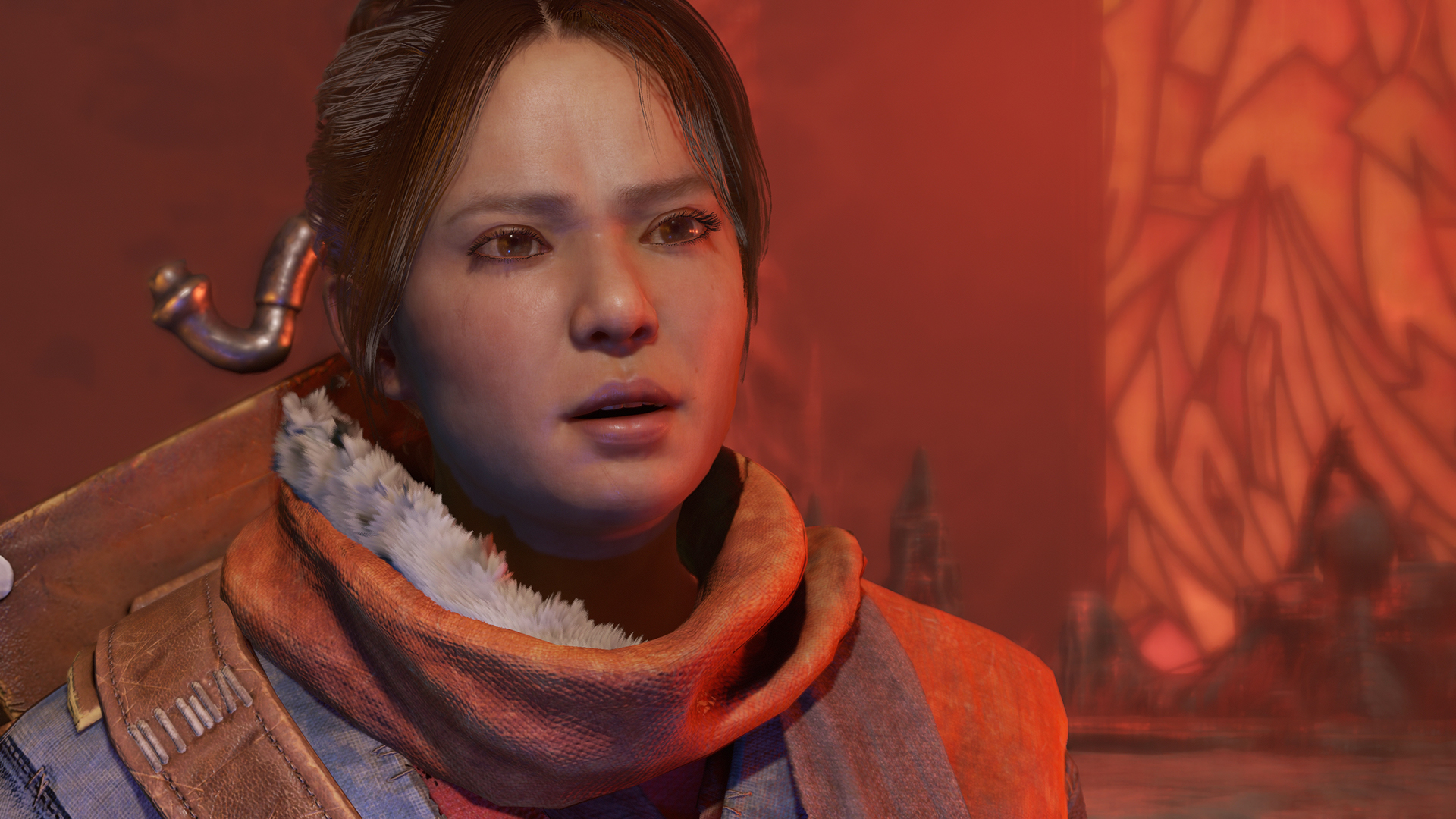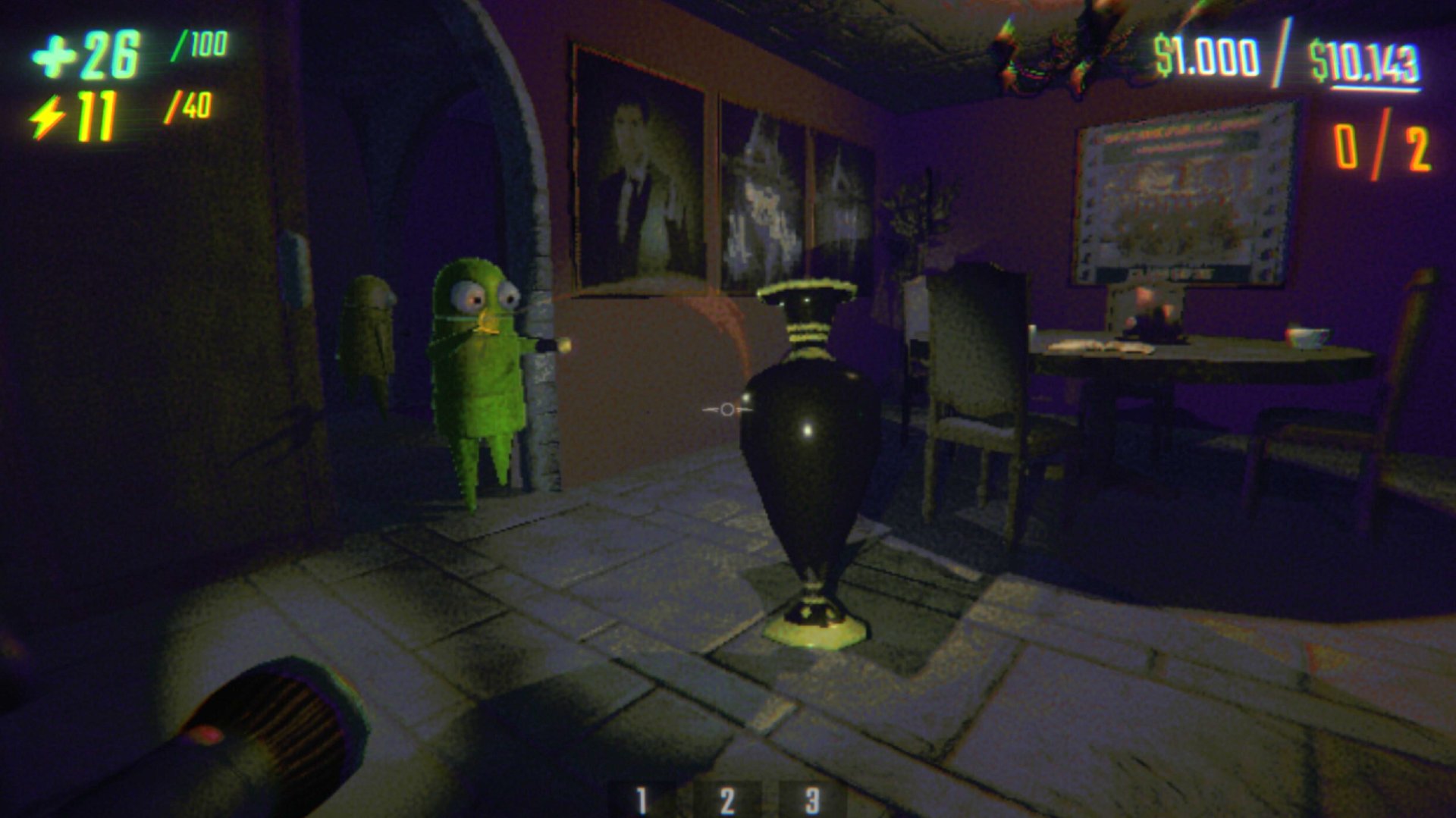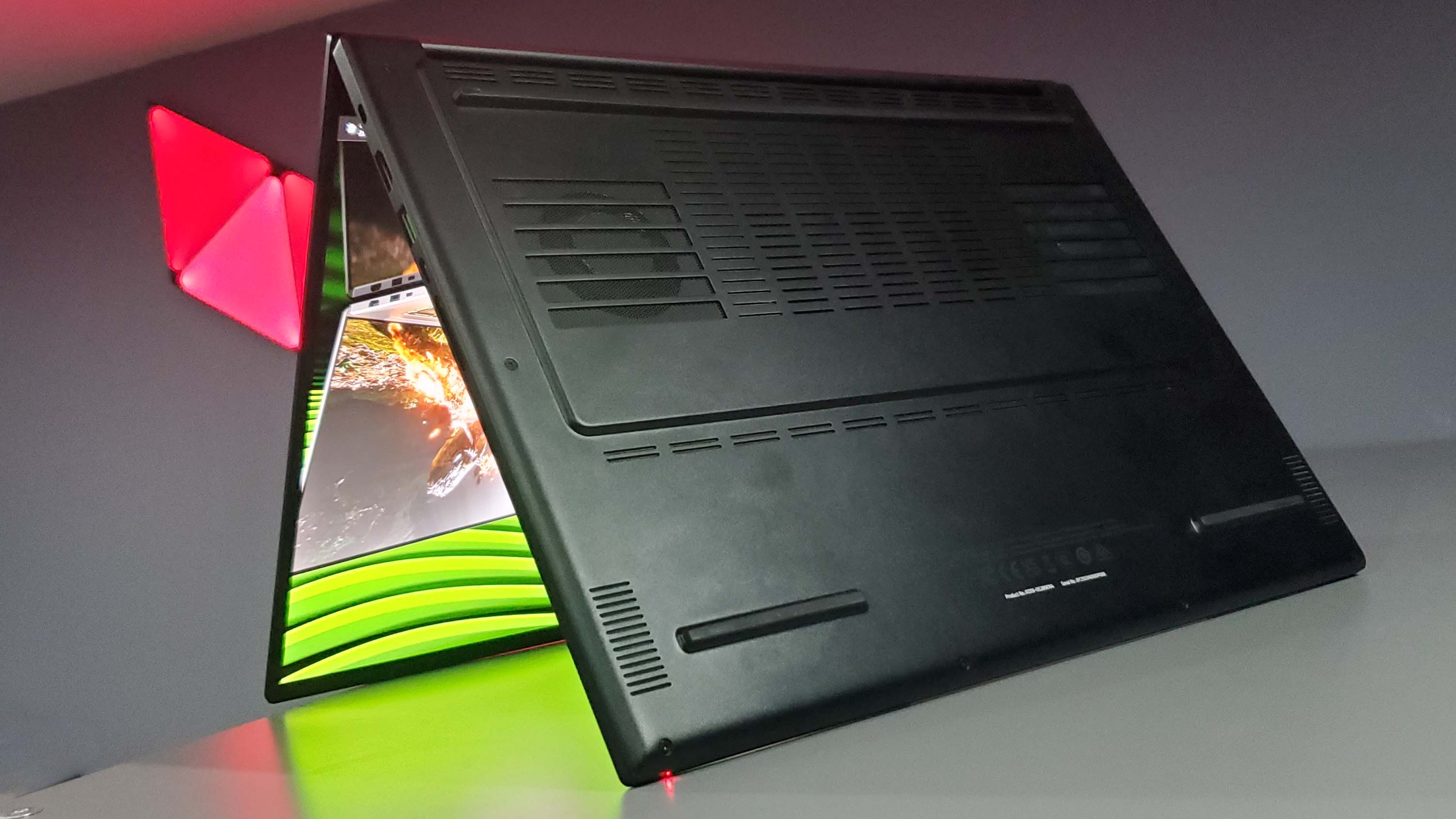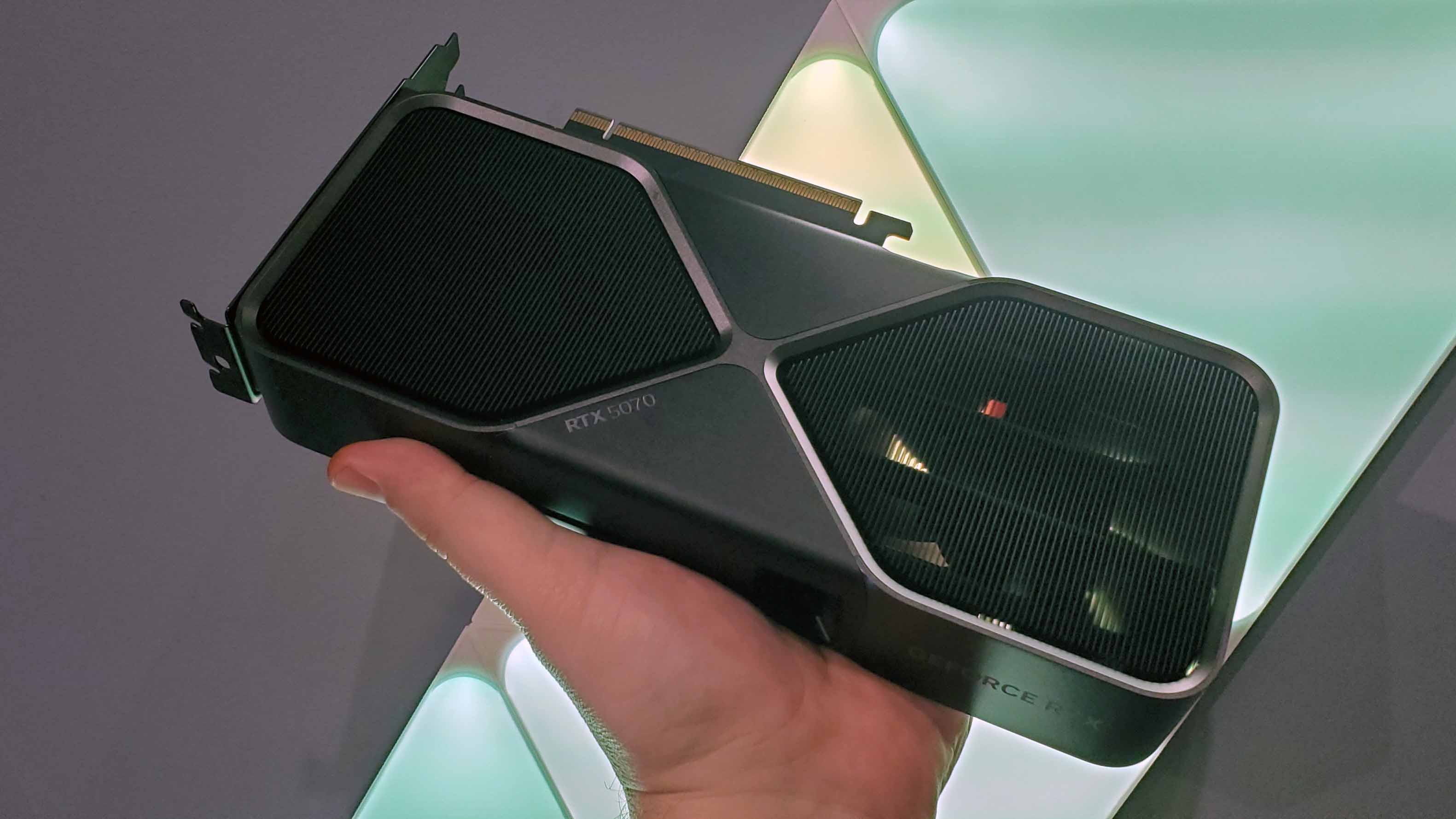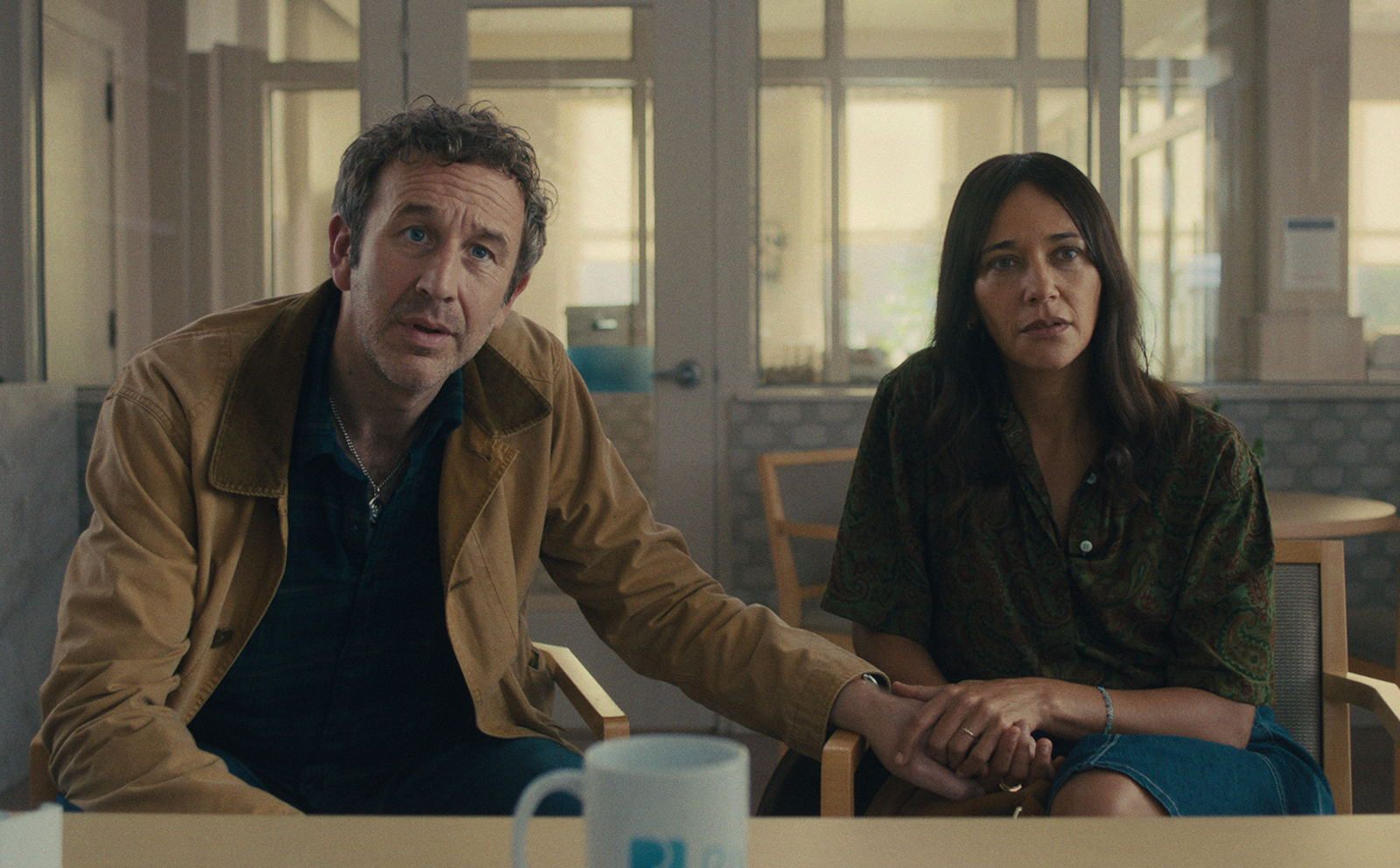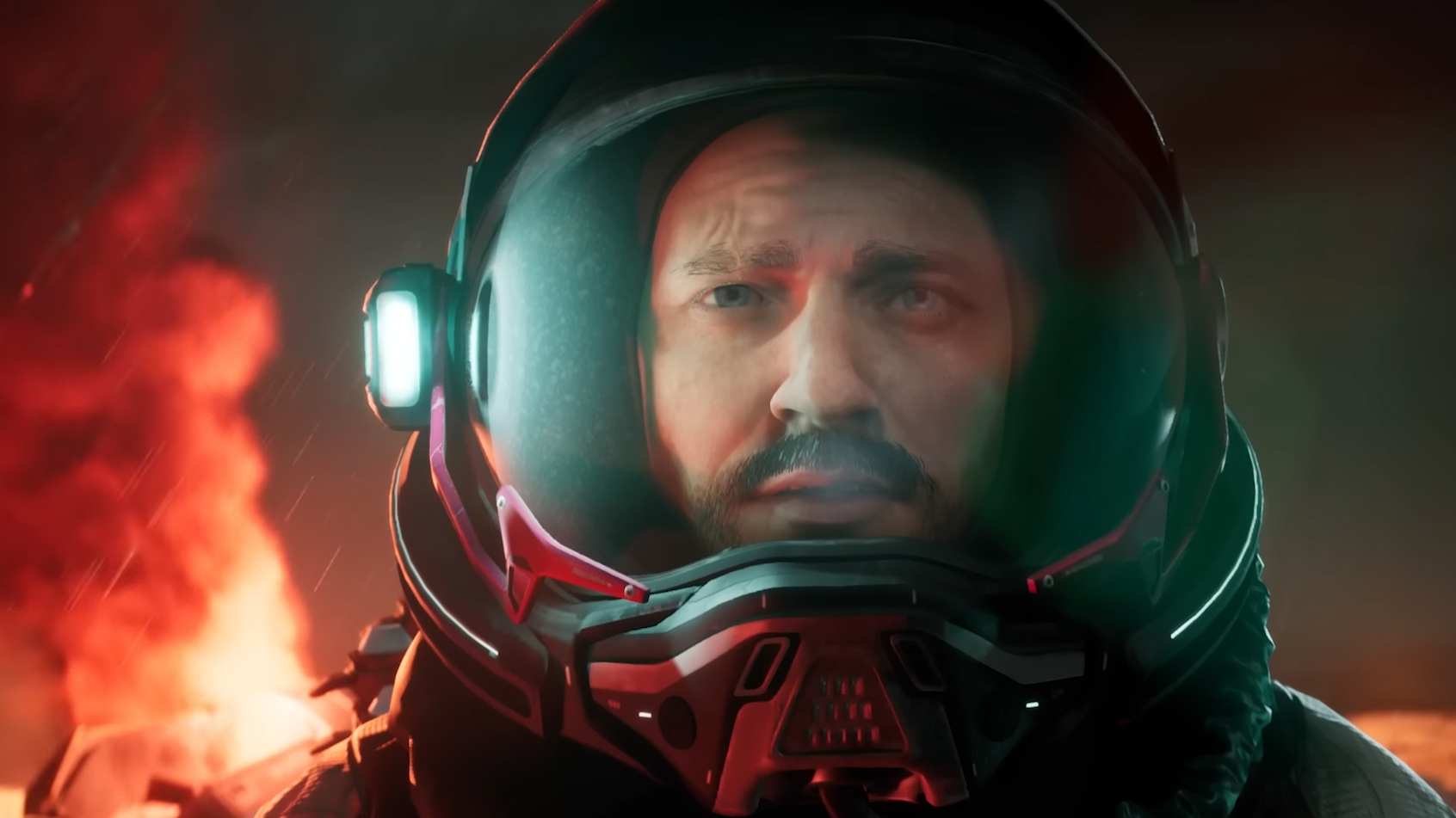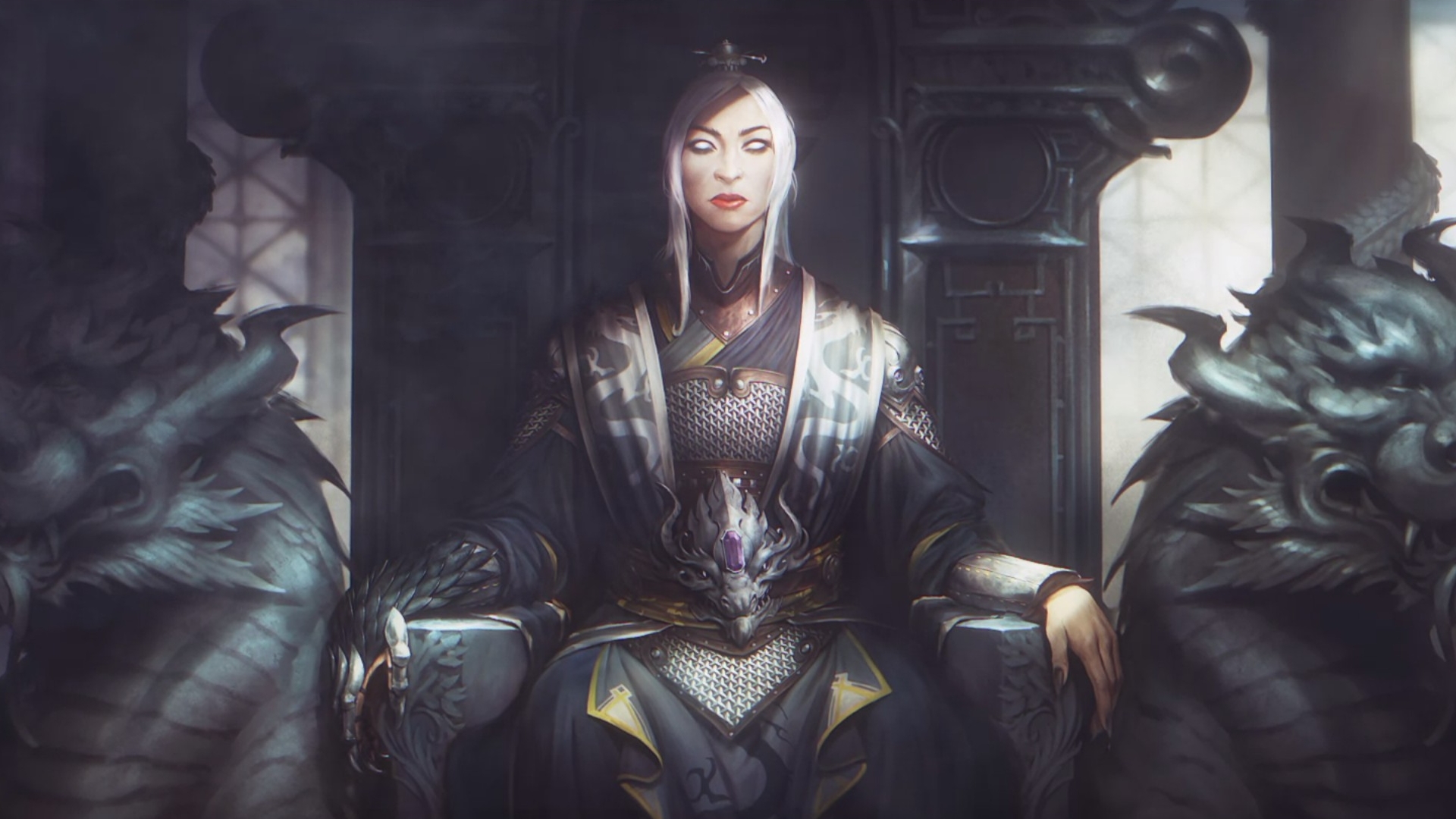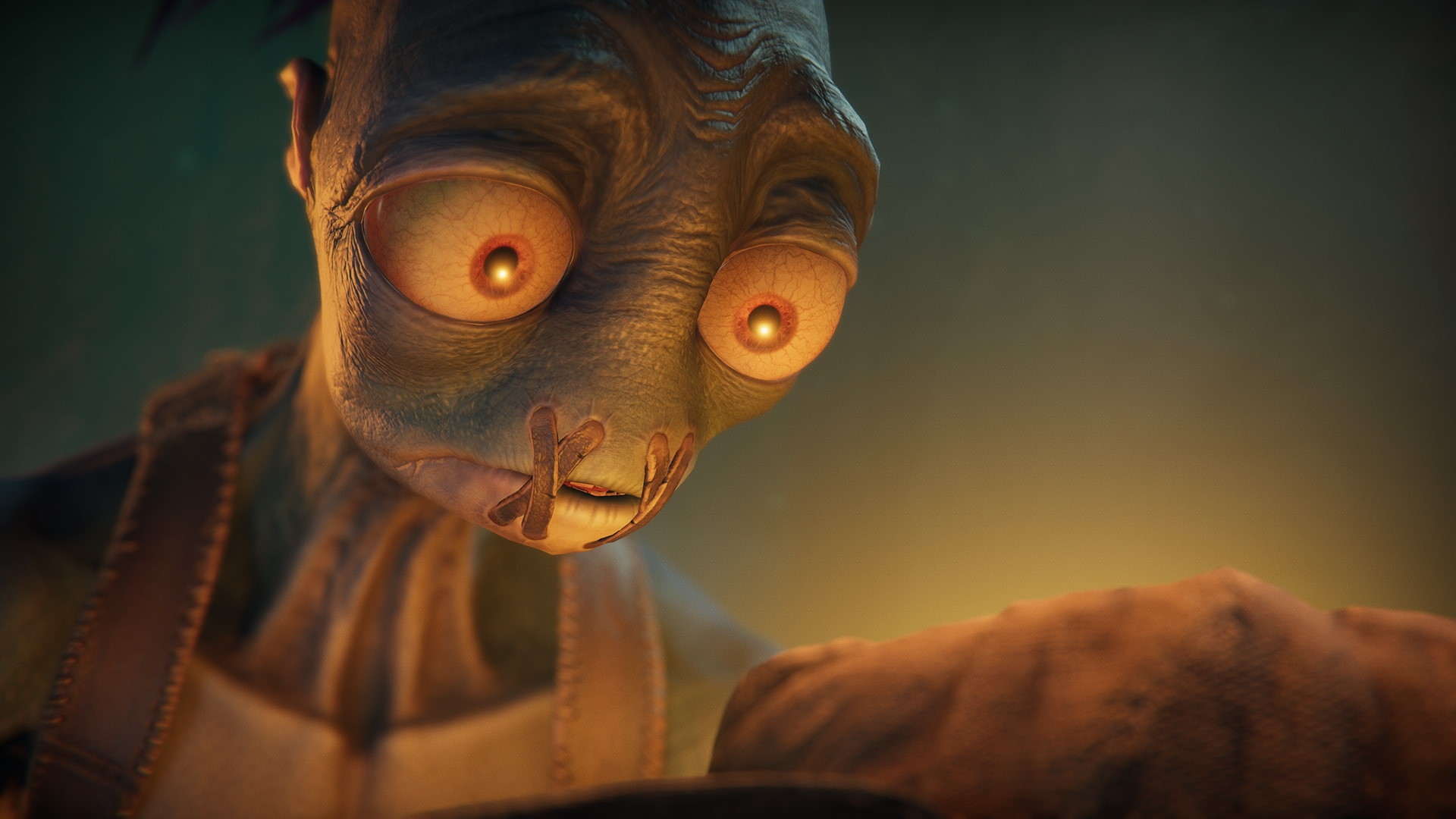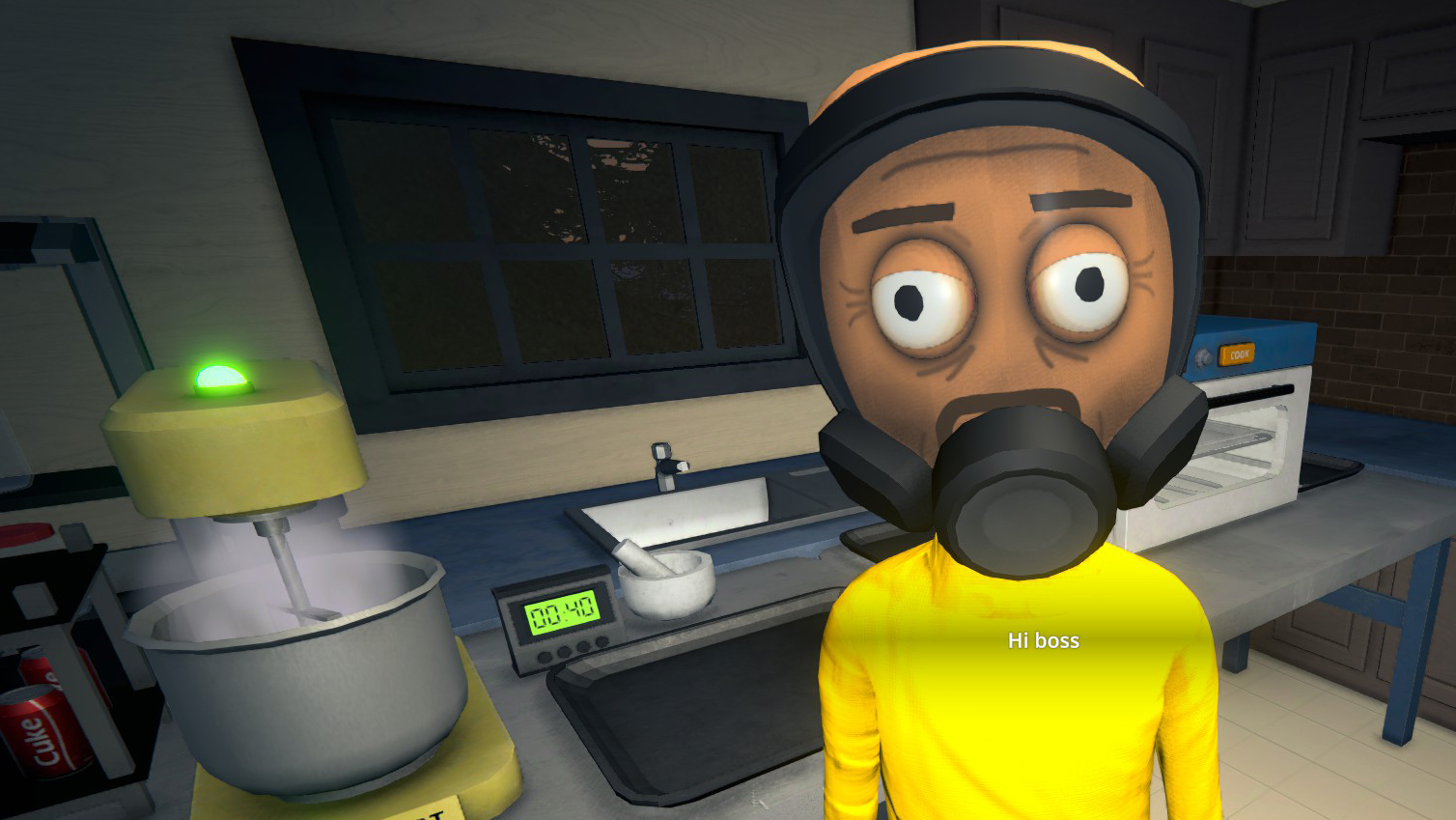
At the Game Developers Conference (GDC) last month, we sat down for an extended conversation with John “Bucky” Buckley, communications director and publishing manager for Palworld developer Pocketpair.
We spoke following his talk at the conference, 'Community Management Summit: A Palworld Roller Coaster: Surviving the Drop.' During that talk, Buckley went into candid detail about a number of Palworld’s struggles, especially the accusations of it using generative AI (which Pocketpair has since debunked pretty soundly) and stealing Pokemon’s models for its own Pals (a claim that the person who originally made it has since retracted). He even commented a bit on Nintendo’s patent infringement lawsuit against the studio, saying it “came as a shock” to the studio and was “something that no one even considered.”
We’ve already run a number of shorter stories on some of the highlights of our conversation with Buckley, but given the depth of insight he provided on Pocketpair’s community struggles and triumphs, we decided to publish the full extended interview here as well. If you’re looking for something a bit shorter and easier to follow, you can read at these links on Buckley’s comments about the possibility of Palworld coming to the Nintendo Switch 2, the studio’s reaction to the game being called “Pokemon with guns”, and whether Pocketpair would ever be acquired.
This interview has been lightly edited for clarity:
IGN: I'm going to get the really annoying one that I know you can't really answer out of the way first. You talked so, so lightly about the lawsuit in your GDC talk. Has that lawsuit made it harder for Pocketpair to move forward and update the game, having that still pending?
John Buckley: No, it hasn't made it harder to update the game or to move forward. It's just kind of something that weighs over you all the time. It's something that everyone's always thinking about, but it hasn't made the game harder to update. It hasn't affected development in that regard. It's just kind of affected the company's morale more than anything else. And obviously, lawyers have to be hired and stuff like that, of course, of course, but I'm not involved in any of that, and really no one else at the company is other than the top, right? It's just morale more than anything else.
Okay, real conversation time. I was fascinated at the start of your talk when you talked about, sort of cheekily, the ‘Pokemon with guns’ moniker. I was surprised that you didn't seem to like that. Can I ask why?
Buckley: A lot of people don't believe us when we say this, but I think a lot of people think that was written on a whiteboard before the game development started, like, “This is the goal," but it never was. We always wanted to make something that was kind of like ARK: Survival Evolved, but with a lot more automation and with a bit more personality to each of the creatures, because a lot of us are huge ARK people, and our previous game, Craftopia, kind of has some stuff in it that we really loved from ARK and some ideas from ARK. So we wanted to just take that and make it bigger. And one of the things that ARK, everything's done with the dinosaurs, and the dinosaurs, some of them are cute, but we wanted to give them more personality, more abilities, more uniqueness. So that was the pitch. The pitch was, let's make something like ARK, but a lot heavier on the automation and each creature's like its own very special thing.
And then we show that first trailer, and then this title kind of came out. And no, we weren't super happy about it, but it is what it is.
You said in the talk that you didn't understand why Palworld took off the way it did, you couldn't explain it. And I'm not a market analyst, so I certainly couldn't tell you, but I do feel like I specifically remember when "Pokemon with guns" came into the conversation.
Buckley: Yeah. No, I mean, that was big. That was definitely a big thing. I mean, Dave [Oshry] Dave from New Blood messaged us because he trademarked the website, Pokemonwithguns.com and stuff. All this kind of stuff happened, and I'm sure that fueled that fire, which is fair enough. But still today, 2025, if people want to say that, that's fine. But the thing that upsets us, I guess, a little bit is the people who firmly believe that's what the game actually is. But it's not even remotely like that to play the game. So if you want to say that after playing, that's fine, but we'd rather everyone give it a bit of a chance first.
Well, how would you have phrased it? What would've been your "moniker" for this?
Buckley: I probably would've called it, “Palworld: It's kind of like ARK if ARK met Factorio and Happy Tree Friends, or something like that. That's how I might've said it.
It doesn't quite roll off the tongue the same way.
Buckley: No, no, it doesn't, does it? Maybe that's why.
Another thing that you brought up in the talk were the criticisms people made saying the game was AI slop. How did that impact folks internally at Pocketpair?
Buckley: Massively, massively, massively, massively. That is by far I would say the biggest kind of thing that was ever against us, still to this day. Go to any Palworld posts or any news article about Palworld, or Reddit post, you'll see someone say, "I hate this company. They use AI," and it's complete nonsense. It's upsetting. It's something that upsets everyone, but at different levels. It's the artists especially who really, really take it the worst, especially our Pal concept artists. We have a few Pal concept artists, and two of them in particular who've been there since day one. They're not big fans of this kind of stuff, but it's very hard to counter this, which we did learn. I talked about that. The easy idea is to put everyone in front of a camera and have them talk about it, but none of our people want to be on camera.
Yeah, when you gave your talk you mentioned people not wanting to be super visible online because the internet is bad.
Buckley: Yeah, they don't want to be visible. And I'm not using it as an excuse, but the vast majority of our artists are female, and in Japan, it's not the way to go about things right now. So they don't want to be on camera, they don't want to be public, they don't want to have their names out there. And yeah, it's upsetting for them, still today it's very upsetting to hear these things. But like I said in my talk, we haven't really cracked how to properly refute this yet. We released an art book, and it definitely, definitely made a big impact, but not as much as we would've hoped, perhaps.
We are having this industry-wide conversation about generative AI and generative AI art, and people think that they're really good at spotting it, and you can't always. If something has seven weird fingers, it's probably pretty obvious, but less so in other cases, right?
Buckley: A lot of the arguments for ours, I think, again, I'm obviously biased towards this, I think they're pretty hollow. I mean, it all comes from comments that our CEO made in 2020, 2021-ish. There was a very famous Kotaku post. Before GenAI really became a thing, Kotaku made an article about it, and our CEO commented, "Sugoi," the Japanese word for amazing. People see the word amazing, and they think his reaction's like, "Whoa, this is incredible. I love this." And I think his intention was more just like a, "Look at this thing." I don't think he was too gung-ho on it.
And then, I think the thing that really kind of tipped it for people is in 2022, 2023, two people... So Pocketpair is what we call an open development company. So you join Pocketpair, and then you work on the game you want to work on rather than we're hiring you to specifically work on this. We check that you can do the work. You join the company. And then, you want to work on Craftopia? Cool. You want to work on Palword? Cool. You want to just do your own thing? Okay, we'll let you do that for a period of time, and if that might become something, maybe we can help you make that.
So, Never Grave, another game we're doing, actually came from that model of people having this idea, they pursued it, and we let them do it. Two or three members of Pocketpair made a game a few years ago called AI: Art Imposter, which is a party game. [Author's note: AI Imposter does involve players generating AI images in a social deduction game format where the "imposter" isn't told the theme of the generation.] Well, that didn't go down the way we thought it would go down. I think we all thought it would be a funny, ironic kind of a thing. Here's a party game where you're trying to catch out the person, but it didn't matter. People take that as our declaration of "We love GenAI." It'll be quite the opposite, but again, it is what it is. Art Imposter was popular in Japan, so like a lot of our games, we're happy that somewhere enjoyed it.
What's your overall take on the state of, not your community specifically, but online gaming communities in general? You're talking about getting all that harassment and stuff, is social media broadly useful for you all anymore?
Buckley: Well, social media's big for us. Funny enough, I went to a publisher roundtable yesterday, and it was very split in the middle, actually. The same question came up. Some of us think, yes, that's the way to go. Some people think it's not the way to go anymore. It's big for us. It's big for us because we are primarily an Asian market game. All of our games have been big in Japan and China and stuff, and these are places where social media is like people live and breathe it. You can't ignore it. Whereas over here, I know there's a bit more pushback. Online gaming communities, yeah, they can be very intense sometimes. I think people get very emotional sometimes and they get very swept away in those emotions, and I understand that. I mean, I used to play a lot of MMOs, a lot of PvP MMOs. That used to be my big thing before I got a real job. The communities, but I understand that people get swept away in things and you kind of lash out, and I get that. And there's a lot of people that lash out at us that I just kind of take on the chin. I'm like, "That's fine."
We sit in that office for 12 hours just living and breathing this game. It hurts us a lot more that these things happen.But it's all this death-threat stuff. It's when it reaches that point where you're like, "How could you be this upset?" It's never that serious. And it's usually very illogical death threats. Maybe we release a patch that breaks something, and, "I'm going to kill you and put a knife in your neck." And I always just want to say, "Do you think we're not going to fix it? I mean, we'll obviously fix this, right? We didn't do this on purpose. We're not breaking your game on purpose."
And I think the big thing that a lot of people don't sympathize with is you might play a game, you might play our game for three hours in a row, and then you experience a critical bug, and it crashes. That's a super frustrating experience. I 100% agree, I sympathize, I get it. But then you disconnect from it, and you go and do something else. We sit in that office for 12 hours just living and breathing this game. It hurts us a lot more that these things happen. So, I wish people would be a bit more sympathetic to these things, that we don't like it as much as they like it, and we're trying to fix these things. So, a bit of heat is fine. Spur of the moment insults is fine. I get it. We're all people, but it's the death threats that really get to us the most because it's so dumb.
Do you feel like social media is trending worse lately?
Buckley: I think, especially these days, there's a lot more people on social media who just say the opposite thing because they know they'll get the reaction now. And it's trending a bit and there's a few big accounts that have become quite notorious for always seeming to be on the opposite side. A new game comes out and everyone's like, "This is great." There's always that crowd now that go, "Nope, this is not. It's bad," for all these reasons that have nothing to do with the game, basically, always. And I think that, I don't know, maybe social media is encouraging that recently. It gets the clicks, it gets the trends. Yeah, luckily, we don't get much of that. Palworld, weirdly enough, kind of has avoided a lot of these, I don't know, I don't know what you say, political and social stuff. We just get a lot of "The game's broken" kind of requests. That's what we get.
I thought it was really interesting in your talk that you said that the majority of the heat came from the Western audience. I guess I just assumed it would be equal across the board. Do you have any insight as to why that was?
Buckley: No, no, no, no. We've tried to figure this out too. We are quite a divisive company in Japan. It's a 50/50 in Japan of whether people love us or whether people really hate us. I don't know. I think not a lot of game companies in Japan make games for the overseas market. They make a game for home, and then it blows up overseas, whereas we always try to strike overseas first with the kind of Japanese flair to it. And we call ourselves indie a lot, which a lot of Japanese gamers don't like, unfortunately. Even though we firmly believe we're indie, but yeah, that's always contested back home. I don't know why we get a lot of heat overseas. Maybe it was just easy pickings at that time. It's simmered down a lot. It's very manageable now. But a lot of that, especially the death threats and stuff, were very much in English. We didn't get a lot of that in Japan or China.
So Palworld was extremely successful, and I get the sense, perhaps in a way that was maybe unexpected for you all based on your talk. Has that changed anything about how the studio runs or what your future plans are or anything else?
Buckley: It's changed our future plans, yes. It has not changed the studio. For better or worse, we remain basically unchanged.
You said the community team did not get bigger in response. Did the studio get bigger in other ways?
Buckley: Yeah. I mean, our server team has grown. We're hiring more developers all the time. We're hiring more artists all the time. One of our sore points as a company is just making things quicker for the fans. So we're always trying to onboard as many developers as we can to kind of speed up development time. But the company culture hasn't changed that much. It's obviously bigger now, but we haven't reached that kind of tipping point yet. And our CEO really wants to avoid that because he's a very homebody kind of guy, so he wants to keep it small. I say small, it's 70 people now. That's a lot of people. He doesn't want to get into the hundreds, he says, anyway. But no, I mean, this level of success was unexpected.
You knew it was a good game, but you didn't know that it was going to be this big.
Buckley: I mean, a million sales for anyone, I think you've made it. Well, sorry. I said anyone. I mean a million sales for an indie game. You've made it. Congratulations. You're a platinum standard. Two million? Unbelievable. You should be screaming that from the roof. When you get into the 10 millions is when it just gets very surreal, and you don't really know what's happening anymore. And Steam is sending you, "Here's your monthly sales reports, and here's your monthly impression reports," and it's just numbers that don't make sense. And then you get a bit, not reckless, but you get a bit free with how you spend it and nothing happens. Yeah, it all gets very weird and surreal, and it's still hard for us to kind of get a grasp on it, basically.
Do you anticipate that Palworld is something that Pocketpair is going to support for a really, really long time to come?
Buckley: Palworld's definitely going nowhere. What form Palworld's going to take, I've no idea, but it's definitely going to be something that we're always sticking on. But we do want to kind of go back to making other stuff, too. We're still working on Craftopia. Even though everyone says we're not, we are still working on Craftopia. And there's people at the company who want to do their own thing as well, so we're trying to find ways to support all of that while also maintaining this machine that is Palworld. Because Palworld's kind of split into two things now, Palworld the game and Palworld the IP, and they're both kind of going on different trajectories right now.
Palworld's definitely going nowhere. What form Palworld's going to take, I've no idea.Yeah. You talked about that partnership that everybody misunderstood.
Buckley: Yeah. No one understands. Someone, literally yesterday, said to me, "Why aren't you wearing a Sony jacket?" And I said, "Because we're not owned by Sony at all." No, that'll be forever misunderstood, I think.
Do you think you guys ever would get acquired?
Buckley: No. Our CEO would never allow it. He'd never allow it. He'd never allow it. He would never, never allow it. He likes doing his own thing and he likes being his own boss. He doesn't like people telling him what to do. So I would be shocked. Maybe when he's old, and he might just sell it off for money. And that would be sad, but in my lifetime, I probably won't see it.
No, it'll be interesting to see where the two paths go. We, Pocketpair, are obviously only involved in where the game path is going. Palworld as an IP, we've given, not given, but we are involved, but very much in the hands of Aniplex and Sony Music who are steering that ship right now. We are just kind of offering our advice and thoughts as they take that.
I know we talked earlier about the Palworld comparisons to a Pokemon, and that you actually feel it's more like ARK. ARK is not actively releasing brand new games every one to two years and has an anime and merch like the way Pokemon does, but Pokemon is gearing up. They've got a release this year. They're constantly doing stuff. Do you see that being competitive in any way or meaningfully impacting you all?
Buckley: I don't think the audiences cross over that much.
Really?
Buckley: And the systems are totally different. I mean, the systems are completely different.
Sure, but you all released after Pokemon Scarlet and Violet, which people including me were very critical of, and I remember seeing a lot of fans going, “Why can’t they just do what Pocketpair did?”
Buckley: I don't know. I think a lot of that's just people trying to stir the pot online. I see some of those comments all the time and I always think, "Come on, guys. Don't be silly now." I think they're just stirring the pot. I mean, we don't consider that as any kind of competition, or we don't want to be involved in that kind of dispute, basically. Ironically, we released alongside two other survival games, and we were more focused on them than we were anyone else, Nightingale and Enshrouded. And we very playfully back and forthed it together, because we are very similar games more than anything else. ARK. I mean, we don't see ARK as a competitor. We love the ARK guys. [Studio] Wildcard are sweethearts.
I don't know. Competition in games is, I've gotten in trouble for ranting about the "console wars" before, but I think the competition in games is kind of manufactured for the sake of it. Almost like a meta marketing kind of strategy. I don't really think there is competition in games. I mean, there's so many games right now. How can you be in competition with one or two? It doesn't really make sense anymore. We're just always in competition with kind of the timing more than anything, I think. I mean, we pull a lot of telemetry and we work with a lot of data companies for these things. I don't know. The one that surprised me the most was a very significant portion of Palworld players bought Helldivers 2 on release. And that was a crossover that I was very surprised about…I think it's the co-op element, the kind of goofy element, having fun with your friends. I think Steam is really good at driving those big game releases as well. So, it's a perfect storm, really.
Would you ever release on the Switch?
Buckley: If we could make the game work on the Switch, we would, but Palworld's a beefy game.
The Switch 2?
Buckley: Well, we haven't seen those specs yet, so we're like everyone else, we're waiting. I mean, I'm walking around GDC hoping someone will tell me them, but everyone I've spoken to says they haven't even seen them. If it's beefy enough, it's 100% worth considering. We did a lot of optimization for Steam Deck, which we were really happy with. Still work to do, but we were very happy with how it turned out. So we would like to get it on more handhelds if possible.
My big takeaway from your talk is that outside of the existing Palworld community of people who have played and enjoyed the game, you feel that Palworld is extremely misunderstood.
Buckley: Yeah, 100%.
What is your singular takeaway message for people who have not played it and you think misunderstand it?
Buckley: I think a lot of people who only know of Palworld from the news and the drama and stuff, in just my opinion, probably completely misunderstand what the game even is. So I would say play it. I mean, I think we should do a demo at some point. Something that I campaign for a lot internally. At some point we should release a demo or some kind of free hour or something if we could figure it out to do it properly. But I think a lot of people who have never played it and only know it from the drama would be surprised if they played it for one hour.
I don't think it's anything like what they imagine it is. We are nowhere near as seedy and scummy as people seem to think we are. I think it's the double-edged sword. We hid from the public to protect our developers, and at the same time, I think that made us look a bit inaccessible, which makes you look bad inherently. If we'd have been more public, maybe we wouldn't have got that reputation. It's two edges to that, but we have to protect our team.
That’s also just the way the internet works. Whatever other things there are to do in Palworld, what’s funny is a meme video of what is effectively distilled down to Pokemon with guns. So that's what everyone's sharing.
Buckley: I mean, I think we're a very nice little company. We've done very well for ourselves with every game we've ever made, and we'll continue, hopefully, to always do well. I think last year was just such a crazy year for games. I think people don't appreciate how crazy last year was. I think people will write about 2024 five years from now. There were just so many unbelievably successful games last year. [Black Myth:] Wukong, Helldivers [2], Palworld, games that just hit numbers that are not normal. So I think emotions were high last year and people got swept away in the fun, maybe.
Rebekah Valentine is a senior reporter for IGN. You can find her posting on BlueSky @duckvalentine.bsky.social. Got a story tip? Send it to rvalentine@ign.com.





